Trinity’s Library and Information Technology Services (LITS) recently hosted its annual Digital Grants Day, designed to celebrate the use of technology in research and teaching projects created by faculty, staff, and students.
said Mary Mahoney, digital grant coordinator, who helped organize the April 21 event.
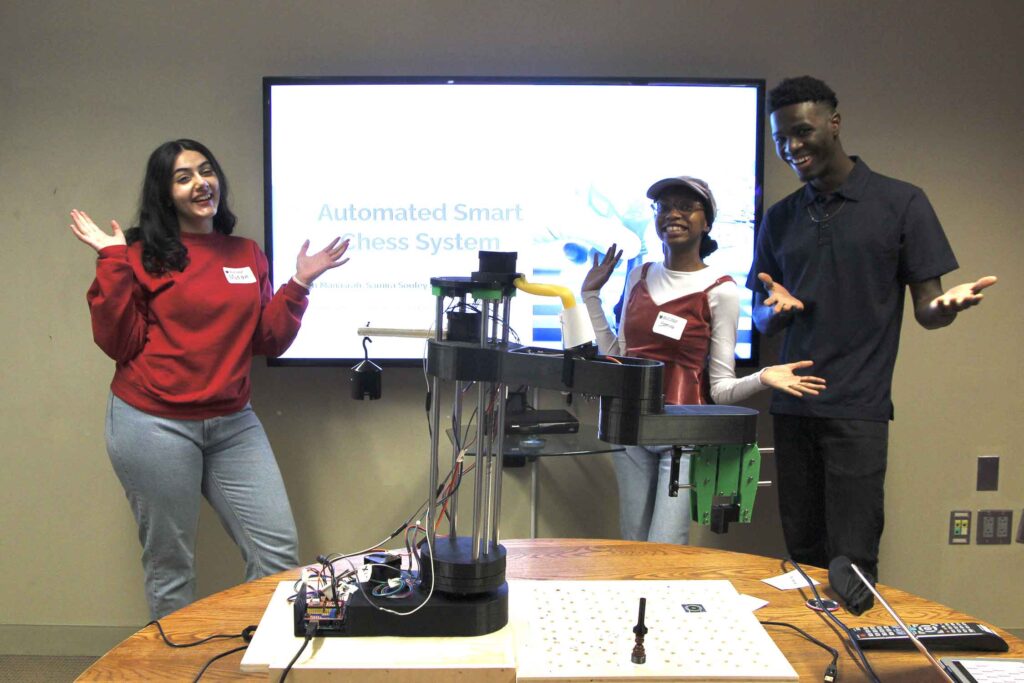
While there are many definitions of digital scholarship, Mahoney said it can mean any type of scientific process or work created using digital tools, technologies, research methods, or platforms such as 3D printing, coding projects, data visualization, digital exhibits, and mapping projects. Podcasts and websites. It can be individual or collaborative, simple or complex, and may produce physical or digital output.
Mahoney, whose previous role at Trinity was a postdoctoral fellow at Andrew W. Several LITS staff members bring specialized areas of expertise to their work to advance digital scholarship on campus. “We have seen an increase in assignments that include 3D printing, mapping, podcasting, timelines, and other forms of digital work across disciplines,” Mahoney said. Learning a skill such as WordPress web design, geographic information system (GIS), or data visualization provides students with an opportunity to think with technology and create work that they can include in portfolios or resumes. The process of making digital work also invites students to consider design options, as well as content and analysis considerations. “This workflow helps students find just as much value in the digital work creation process as in the product,” Mahoney added.
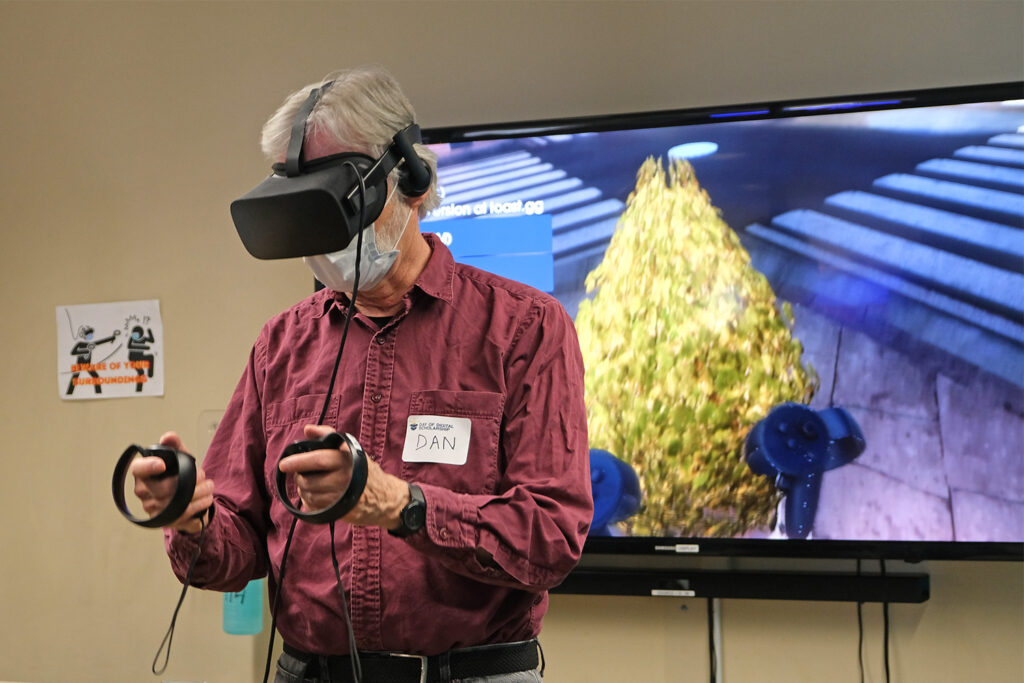
At this year’s event, the Digital Scholarship Faculty Fellows shared the culmination of their work. Funded by the Mellon Foundation, this fellowship offers faculty exposure to different approaches in digital scholarship through monthly meetings and workshops.
Associate Professor of International Studies Janet Bauer reviewed her story maps, Trincoll sex stories, in the event. Trincoll . sex stories An archive of Trinity Community stories about creating and transforming college programs and initiatives that address gender and gender redefining on campus, was initiated from the Task Force on the Status of Women in Trinity, Women, Gender and Gender. and the Women’s Action and Gender Resource Center, for introducing women’s sports and transformations into the curriculum.
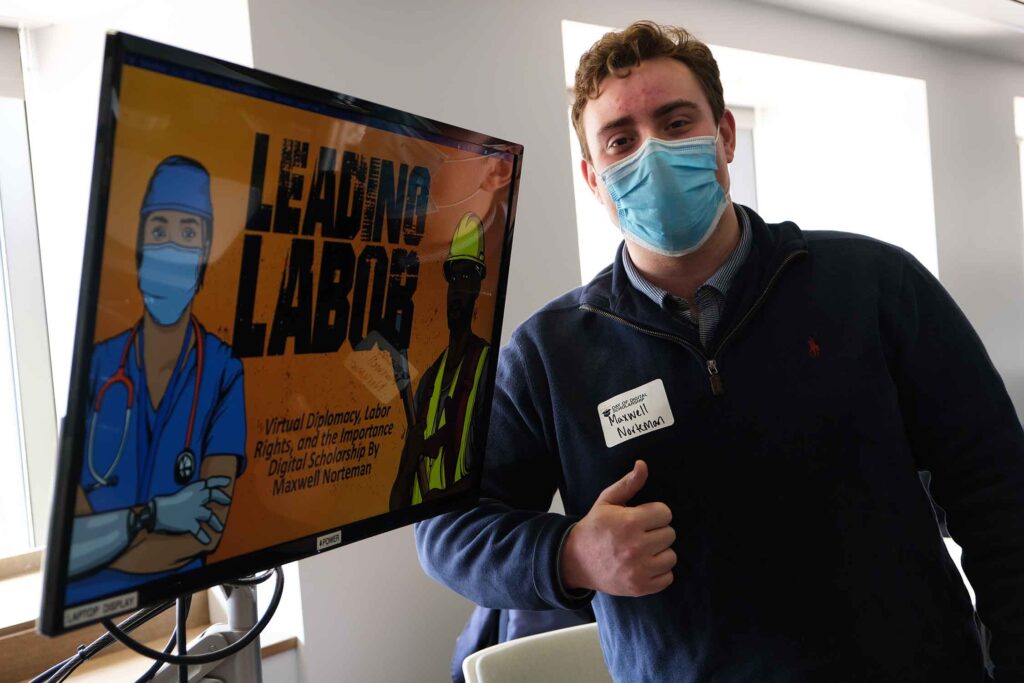
“The students and I began this project by digitizing program materials and interviewing senior faculty who were involved in a variety of efforts in the 1970s and 1980s, only to realize that these were stories that involved the intertwined efforts of not only faculty, but staff and students, who must also Record their memories and archive them,” Bauer said. Digital platforms provide a single way to archive and share research materials shared by students and faculty with local communities. Doing so reminds us of our interrelationships with and responsibilities to the communities in which we operate, provides an opportunity for students and faculty to engage broader communities in the conversation, and generates new forms of knowledge.” This semester, two of Power’s classes are working on collaborative story maps that will be added to the Trincoll . sex stories website.
For some students, the opportunity to use digital tools in course work has turned into a career opportunity. GiGi Hernandez ’22, who specializes in theater and dance, creates diagrams for Amanda J. Guzman’s anthropology assistant website on the digital humanities.
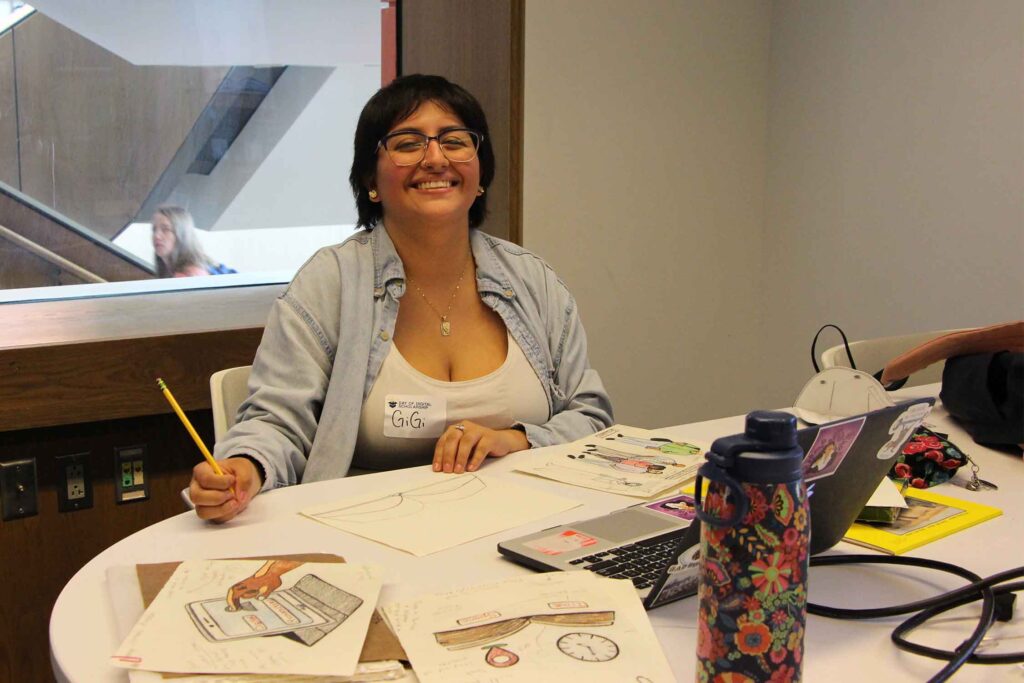
Hernandez said, “Despite my session [during the Day of Digital Scholarship] It was a live drawing with paper and pencil, it’s good to show people how to start creating my work, because it is important to show the arts in different fields and show the work that the students are doing on campus. This is literally a dream come true and it is a blessing to be able to create art for people and help make their visions come to life.”
In addition to the work on display during Digital Scholarship Day, The Incubator is a digital scholarship showcase designed to highlight how the Trinity community uses technology in innovative and creative ways. “Our goal with The Incubator is to provide examples that can encourage others who might be interested in embarking on their own digital business,” Mahoney said. The Trinity community has access to resources such as a 3D printing lab, virtual reality equipment, story lab recording studios, and a Trinity Domains hosting site that gives faculty, students, and staff access to free web hosting and software including WordPress.
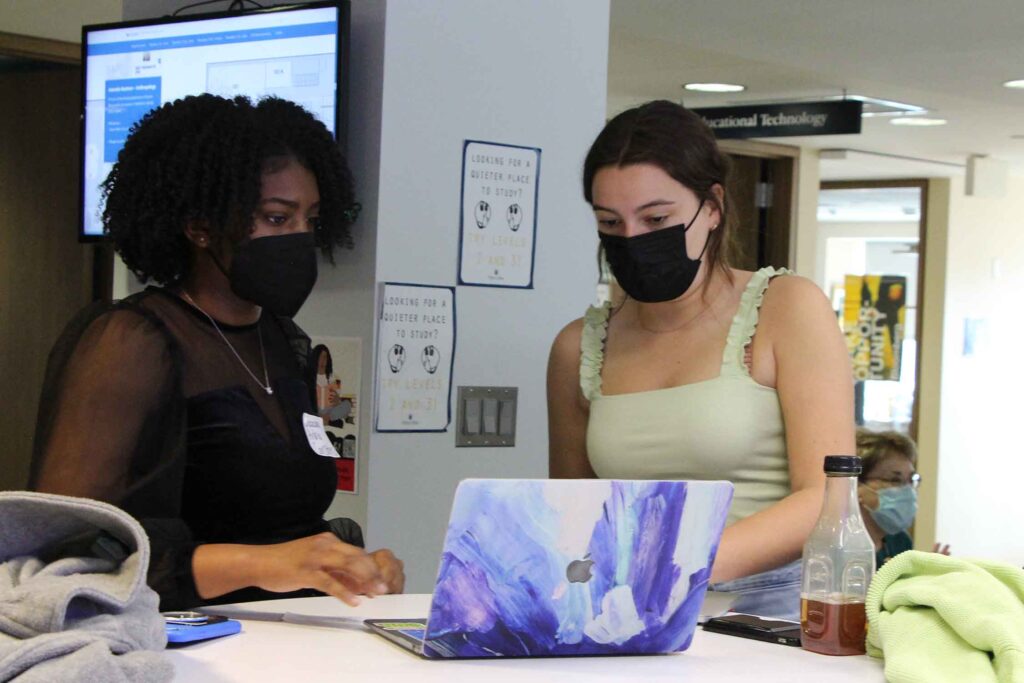 Mahoney noted that this technology was not available when she was an undergraduate at Trinity. “It is great to be back here now and support the wonderful work with technology in so many different disciplines. My own work is in history and podcasting, and I love the opportunity to share that with faculty and students and support them in making their own projects,” she said.
Mahoney noted that this technology was not available when she was an undergraduate at Trinity. “It is great to be back here now and support the wonderful work with technology in so many different disciplines. My own work is in history and podcasting, and I love the opportunity to share that with faculty and students and support them in making their own projects,” she said.
Mahoney said that an important aspect of digital scholarship is its focus on the process as much as the product. “This event is designed to give researchers an opportunity to showcase work in progress, as well as work done. We hope this will be a space to get useful feedback on digital work.”
Read more about all the projects submitted on the 2022 Digital Scholarship Day here.
Learn more about the Trinity Digital Scholarship here.

Comments
Post a Comment